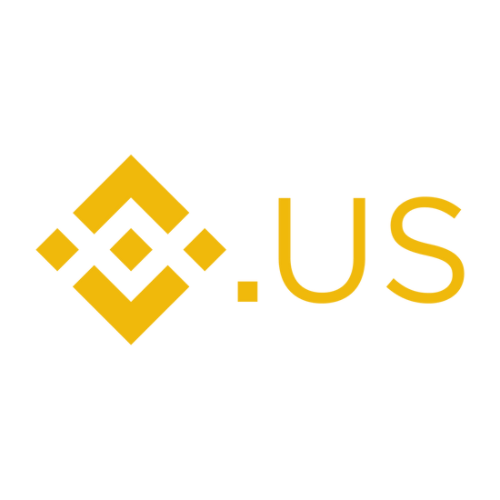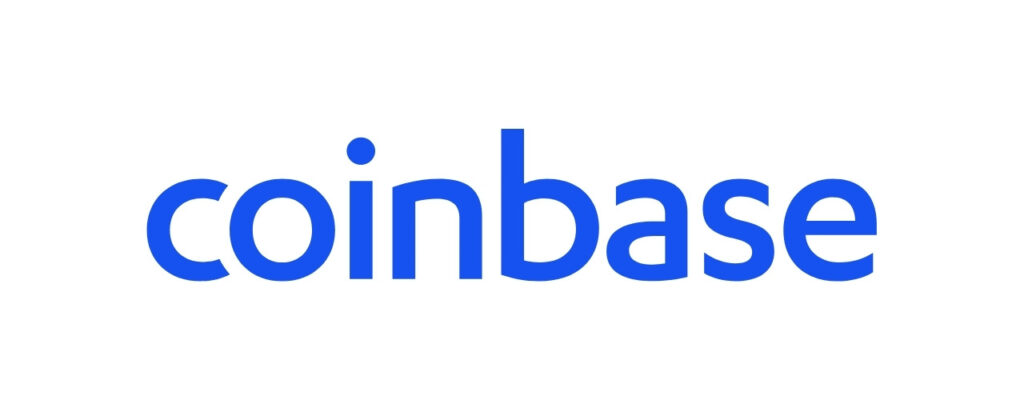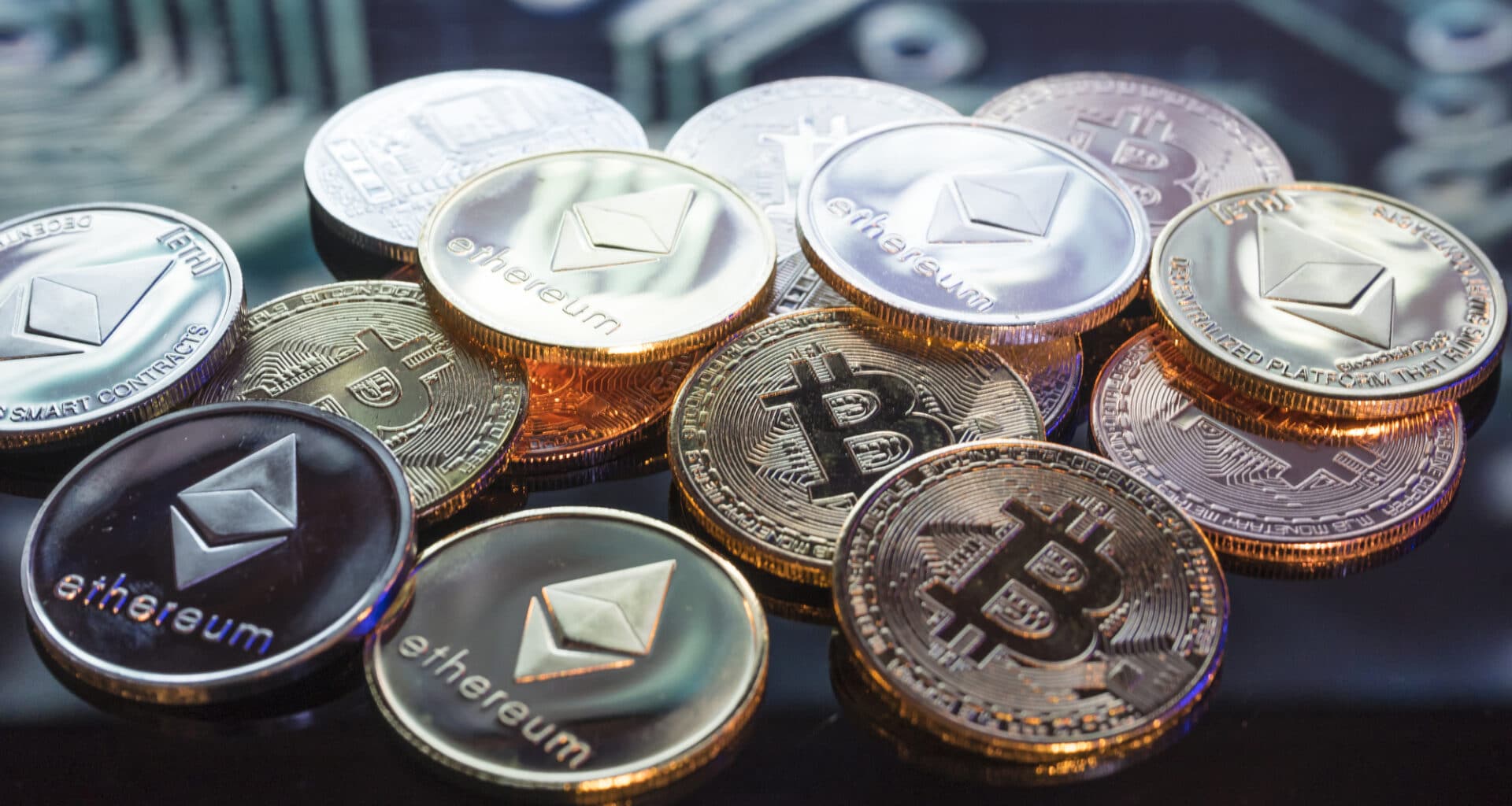Cryptocurrencies have taken the world by storm in recent years, proving they are anything but a fad. Billions upon billions are exchanged daily with digital coins and, despite some of the controversial events, this activity is not showing any signs of slowing down.
Dealing with cryptocurrencies is distinct from other older financial instruments like equities and currencies. One of the journeys any user in this space will need to travel through is using exchanges.
Because of America’s strict stance on regulation, only a handful of such businesses serve their clients. If you’re wondering what the best crypto exchange for US residents is, you’re at the right place as we’ve briefly reviewed the five top options. So, without further ado, let’s get started.
What is a crypto exchange?
A cryptocurrency exchange is merely a ‘matchmaking service’ connecting buyers and sellers of various cryptocurrencies. For instance, you can buy Bitcoin on an exchange using a fiat currency like the US dollar, euro, or British pound, or you can purchase Ethereum with a myriad of other supported cryptocurrencies.
Exchanges act as middlemen between the two parties and charge a fee or commission for every successful trade. Their main job, like other exchanges, is providing liquidity or, put simply, the marketplace.
Liquidity refers to how efficiently you can trade a financial asset without causing any drastic price changes and delays. In another sense, an exchange provides ‘inventory’ for a host of cryptocurrencies.
When you buy BTC from an exchange, it needs to source this cryptocurrency from external liquidity providers and users within the platform who provide substantial volumes of the coin.
It achieves this mechanism primarily through what is known as an order book, a matching engine providing a list of orders made by buyers and sellers for each cryptocurrency on the exchange.
When you place a ‘buy’ order on a platform, the order book matches this with an equivalent sell order and executes the deal. Prices with cryptocurrencies are not constant primarily because of the decentralized nature of this financial instrument – but fees, trading volume, and other factors do play a role.
Ultimately, supply and demand forces determine the value of cryptocurrencies. Exchanges only facilitate the buying and selling on their platform and, for the most part, should not artificially inflate prices for selfish gain.
We categorize exchanges as centralized and decentralized. The primary distinction is the former utilizes order books to source liquidity while the latter doesn’t. The exchanges referred to in this article are all centralized.
One of the unique things about cryptocurrencies is that trading happens 24/7, meaning there are no closing hours. Many exchanges provide an in-built wallet for traders to store and manage the trading of different coins.
Furthermore, they will connect their trading to an internal or external charting software program to facilitate transactions and perform technical analysis.
What to consider when choosing a US based crypto exchange
As expected, customers have tens of exchanges to choose from. While there aren’t so many strictly US based crypto exchanges, each of their services will contain considerable nuances in features and services worth considering.
So, how do you find the best crypto exchange? Here are the main factors to incorporate into your decision-making.
Regulation
The cryptocurrencies industry is technically unregulated due to its decentralized framework. Therefore, it isn’t like many financial instruments such as stocks and futures lauded for solid regulation.
So, the next best thing primarily for US based crypto exchanges is registration with FinCEN (Financial Crimes Enforcement Network). US exchanges fall under the Bank Secrecy Act, a law where American financial institutions are mandated to assist government agencies to prevent money laundering.
FinCEN is the bureau requiring exchanges to comply with Know-Your-Customer (KYC) guidelines, anti-money laundering policies, and preventing other financial malpractices.
Ultimately, such measures are technically just ‘light regulation’ and cannot be compared to traditional regulatory licenses from institutions like the CFTC (Commodity Futures Trading Commission).
Although these checks are still beneficial, it’s crucial to remember that traders need to take great care when doing cryptocurrency transactions, as errors are usually irreversible.
Nonetheless, the proper regulation ensures an exchange is sufficiently capitalized and adds a much-needed layer of trust.
Security measures
While hacking events have occurred even with the highest security measures, the point is to minimize such criminal activities by using exchanges employing smarter precautions.
± The first thing to consider is which connection the exchange’s website runs its traffic through, specifically HTTP or HTTPS. You can find this information by searching for the brand’s name on Google or your browser’s search bar. HTTPS is considered more secure since it adds data encryption.
± The second aspect is two-factor authentication. While it makes simple processes like logging into your account a little more tedious, the extra layer of security confirmation is beneficial for clients overall and makes it challenging for any unauthorized access to occur.
± The third factor is KYC. As US based crypto exchanges, like other non-decentralized entities, are centralized in nature, it’s common for them to follow this verification process to ensure only you have the authorized control to your account.
Alternatively, you have the option of using decentralized exchanges if you prefer anonymity.
± Last but not least is cold storage. To prevent large-scale hacking events, the best US crypto exchange will keep at least 95% of its clients’ deposits in wallets not connected to the internet.
Moreover, it’s generally recommended for customers to personally consider cold wallet storage for the same reasons.
Range of markets offered
The number of cryptocurrencies keeps increasing exponentially. New projects in this industry are constantly being launched, furthering the search for investors to find which coins will have the highest profit potential.
Hence, the best US crypto exchange should provide as many cryptocurrencies markets as possible for a more comprehensive investment choice. The extensive selection offers convenience as users can only use one marketplace rather than multiple.
Payment methods
This aspect refers to the methods you choose to deposit and withdraw your money from an exchange. Most exchanges nowadays only allow crypto-to-crypto transactions, but an increasing number are beginning to incorporate fiat-based options like bank wire, debit/credit cards, and e-wallet services such as PayPal.
It all boils down to which avenues are most convenient for you based on your preferences or experience. Generally, it’s better to transact crypto-to-crypto using stablecoins (Tether, USD Coin, etc.) as fiat-based options tend to carry higher charges
Types of trading
This factor shares similarities with the previous point. Do you want to trade crypto-to-fiat, fiat-to-crypto, or a bit of both? Again, it depends on your preferences based on your market selection.
For instance, Gemini and Binance US only provide US-based markets, but other exchanges have GBP and EUR markets paired against cryptocurrencies.
Trading costs
This list certainly wouldn’t be complete without talking about fees. It’s not uncommon for financial institutions to hide other costs in fine print and confuse their clients with fancy terminology.
So, which costs should you observe with US based crypto exchanges? The primary revenue source for exchange is the maker-taker fees which refer to the costs of adding to the liquidity pool (maker) and taking away from it (taker).
The industry average is 0.25%/0.20%. Therefore, any exchange charging less than this amount is considered excellent. If you’re looking to trade with margin, other costs like rollover should be considered.
Another area to investigate is the deposit and withdrawal fees. As previously mentioned, fiat-based payment methods generally have higher costs. Yet, it doesn’t necessarily mean using crypto is cheaper as it depends on the blockchain used.
You’ll want to make a thorough comparison across the board to find the most reasonable deal. Exchanges are increasingly offering incentives to lower the trading costs through volume discounts and exchange tokens, all things you’d also desire to observe beforehand.
Customer support
The most common customer service channels with exchanges are live chat, email, and phone. Some can deal with account-specific issues on social media platforms like Facebook and Twitter. Regardless, you’ll want to ensure responsive and helpful customer support to have your issues resolved promptly.
Wallet provision
Although exchanges are not required to offer a wallet service, using an exchange offering one is still more convenient. Alternatively, you can use the countless external providers for storing your coins.
It’s generally recommended to keep only a tiny portion of your tokens in software or ‘hot’ wallets (mostly provided by exchanges) for everyday transactions. A hardware wallet or ‘cold’ wallet (supplied by external services) should contain most of your holdings for more long-term storage.
Which are the best US based crypto exchanges?
Now let’s dive into the five best US based crypto exchanges with a brief review and listing some of the notable pros and cons.
Binance.US: Best Overall

Binance, initially founded in 2017, is a well-known, Chinese-based cryptocurrency exchange and has consistently boasted the most significant trading volume worldwide.
In September 2019, it launched Binance.US, essentially the American version of the business leveraging its parent company’s technologies. Presently, Binance.US has a 7.9/10 score on CoinMarketCap based on traffic, liquidity, and confidence, one of the highest amongst US based crypto exchanges.
While nowhere near as high as its parent brand, Binance.US provides around 120 pairs from 62 digital currencies, which is still fairly sizable. Like the original Binance, Binance.US offers one of the most reasonable trading costs with a 0.1% maker-taker fee.
Users can receive a 25% discount by trading with Binance Coin (BNB), Binance’s utility token. You can deposit and withdraw with the exchange using debit/credit cards, bank wire, ACH (automated clearing house), and, of course, a host of supported cryptocurrencies.
For incentive purposes, clients can stake and earn rewards with seven coins. While much of the main services are stripped-down compared to the original Binance, Binance.US is undoubtedly still a contender for the best crypto exchange for US residents.
Advantages
- Associated with Binance
- Has one of the lowest maker-taker fees in the industry
- Decent selection of crypto markets available
- Low $10 minimum deposit
- Trading fee discounts offered with BNB
- Wallet provided in partnership with Trust
Disadvantages
- Not available in all 50 US states
- Much lower market selection and services compared to the original Binance
- Only offers USD for fiat trades
- No margin trading available
Kraken: Best For Wide Range Of Markets

Kraken is one of the oldest crypto exchanges worldwide. Named after the mythical sea monster to signify the brand’s dominance in the industry, Kraken offers secure and innovative exchange services for a sizeable number of popular cryptocurrencies.
Residents from 48 US states and most countries in the world can use Kraken. One of the key advantages of the exchange is the number of fiat currencies they support, namely USD, EUR, GBP, JPY, CAD, AUD, and CHF.
Users can fund with crypto and other methods like bank wire, PayPal, etc. You can trade around 355 markets from a selection of 92 coins with competitive maker-taker fees of 0.16%/0.26%.
With an overall 8.2/10 score from CoinMarketCap, the second-highest among US based crypto exchanges, Kraken is a name you can trust for coin trading services.
Advantages
- Available in nearly all US states and most countries globally
- Has been in business since 2011
- Provides a sizeable selection of crypto markets, including several crypto-to-fiat
- Flexible number of payment options provided
- Reasonable trading fees overall
- Coin staking available
- Offers margin trading at 1:5 max leverage and perpetual futures trading at max 1:50 leverage for eligible clients
Disadvantages
- No wallet provided
- No phone support
Coinbase: Best For High Trading Volume

Coinbase is another old player in the exchange, having been founded in 2012. After Binance, Coinbase is presently the second-largest exchange by trading volume, regularly processing billions daily.
The brand was recently listed on NASDAQ as a publicly-traded company, further adding to its credibility as one of the leading digital currency exchanges. Tens of millions of individual and institutional clients in over countries use Coinbase’s buying, trading, earning, and wallet services.
Besides buying and selling, you can earn rewards by lending out your holdings. Coinbase’s maker-taker fees range between 0-0.50% (depending on trading volume), which is on the high end for trading costs in the industry.
Nonetheless, Coinbase has an 8.7/10 score from CoinMarketCap (second-highest of all exchanges globally), with the site suggesting the exchange supplies 110 coins and 329 markets.
Advantages
- NASDAQ-listed company
- Founded in 2012
- Supplies a self-hosted wallet
- Processes the second-highest trading volume in the world presently
- The exchange is contactable via phone, and email
- Offers a broad selection of tradable markets
- Provides lending services to earn rewards with your coins
- Clients can fund in USD, EUR, and GBP
Disadvantages
- No margin trading offered
- Known for having slightly higher trading fees
Gemini: Best For Security

In Latin, ‘gemini’ means twins, a fitting name as the exchange was founded by the famed billionaire Winklevoss twin brothers. The duo used this namesake to represent duality, a merging of the old fiat and the new crypto worlds and with the hope of enhancing the latter.
Presently, Gemini is ranked 16th for exchanges with the most substantial trading volume with a 7/10 score, according to CoinMarketCap. Aside from the expected deposit/withdrawal costs, Gemini charges 0.25%-02% maker-taker fees.
While their market selection is quite limited compared to the others, Gemini offers roughly 45 digital currencies, with USD as the only fiat market available. Fortunately, the exchange compensates for this lack through its security measures, making Gemini one of the safest exchanges to use.
Aside from never experiencing a large-scaling hacking incidence to date, the brand uses top-notch security practices in internal controls, infrastructure, compliance, account management, and wallet storage.
Overall, Gemini is the go-to crypto exchange for security-conscious clients with all the expected competitive provisions from a US based crypto exchange.
Advantages
- Highly regarded for top-notch security
- In-built wallet available
- Reasonable deposit/withdrawal fees
- Offers its own NFT platform, Nifty Gateway
- Provides lending service for earning yields with your cryptos
Disadvantages
- Limited market choice
- Slightly higher than average maker-taker fees
- No margin trading provided
- The exchange is only available in about 55 countries
- Only email customer service is supplied
FTX.US: Best For Margin Trading

Like Binance, FTX.US is America’s version of the already-established FTX exchange. The brand launched in May 2020 to present itself as a credibly regulated exchange providing crypto trading services to the under-served American market.
Like Binance.US, FTX.US market selection is stripped-down as FTX’s subsidiary, providing around 46 markets from 22 coins. Luckily, it makes up for these shortcomings by supporting margin trading with maximum 10x leverage.
Also, FTX.US boasts maker-taker fees of 0.02%-0.07%, lower than even Binance. The exchange doesn’t charge fees for bank wire deposits/withdrawals, along with no withdrawal charges for all offered cryptocurrencies except ETH and OMNI coins.
FTX offers AUD, USD, EUR, and BRZ as fiat currencies paired against the available crypto markets. Moreover, FTX provides their own NFT platform minting and trading NFTs like Gemini.
All in all, if you’re primarily looking for higher-leveraged margin trading of cryptocurrency derivatives as a US citizen, FTX may be a suitable option.
Advantages
- Subsidiary of FTX
- Offers the most competitive maker-taker fees
- Provides up to 1:10 margin on spot markets
- Users can trade numerous fiat-to-crypto markets
- Provides NFT minting and trading platform
Disadvantages
- Still a relatively new exchange
- Reduced market selection compared to parent company
- No phone or live chat support
- No in-built wallet supplied
FAQs about the best US based crypto exchanges
Which crypto exchange is best in the USA?
This depends on the main things you need. According to our reviews, Binance.US is the best overall. Kraken is suitable if you desire a more comprehensive range of markets; Coinbase is preferable for the highest trading volume; Gemini tops the list for safety and security, while FTX.US may be best for margin trading.
Is crypto regulated in the US?
To date, the US hasn’t yet crafted a direct regulatory framework around cryptocurrencies as they have with other financial markets, but speculation suggests they eventually will.
Crypto isn’t regulated by the SEC (Securities and Exchange Commission) or the CFTC (Commodity Futures Trading Commission). Hence, digital currencies are largely unregulated in the traditional sense. The closest to regulation in the US is through FinCEN with their roles as explained in the previous section.
Why are some crypto exchanges not available for US customers?
Similar to how only a handful of forex brokers serve US customers, most exchanges are hindered by the strict US regulations, expensive licenses, cumbersome paperwork, and other red tape.







